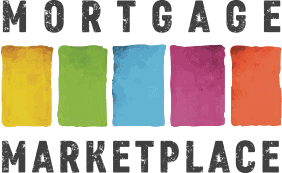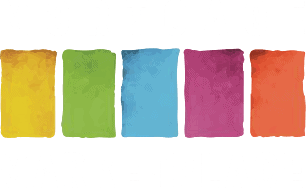Documents Needed for a Self-Employed Mortgage
- Whole of market mortgage advice
- We'll find the best solution for your personal circumstances
- Access to competitive rates and exclusive products
- Friendly, knowledgeable advisers regulated by the FCA
Get in touch today to discuss your needs and goals.
Read, listen or watch below to learn more.
Home » Self-Employed Mortgages » Documents Needed for a Self-Employed Mortgage
What counts as Self-Employed?
You need to own at least 20% of a business to be deemed Self-Employed and have this as your main source of income. You can be a sole trader, part of a partnership or a Limited Company Director.
You will need to prove your income regardless of what Self-Employed category you fall into when trying to access mortgage products. It is important to have your documents ready to prove to your lender your income. It is advised to reach out to an accountant to further help you to gather your documents and to ensure you have filed your taxes correctly.
Proving your income as a Sole Trader
You will need to gather all of your HMRC Tax Calculation and Tax Overviews dating back as far as two years.
Proving your income as a Limited Company Director
You need to provide a lender with your Director’s salary as well as any dividends that you pay yourself. If you have retained profits within your business, you may need to find a specialist lender who will allow for these to be factored into the calculation when it comes to how much of a mortgage you are allowed. A small but significant number of lenders do accept retained profits towards your mortgage loan. You will need to gather all of your HMRC Tax Calculation and Tax Overviews dating back as far as two years.
Proving your income as a Contractor
As a contractor you will need to provide as many contracts as you can to prove that you have a regular stream of work. If you have a lot of gaps between contracts lenders will ask why so it is best to try and avoid this. If you are on a day rate, then lenders will usually multiply this out to work out an annual income.
Proving your income as a Partner
If you are a member of a team you will need to provide your share of the net profits as well as any dividends you have. Yet again, if you have retained profits tied up in the business it can be worth seeking a specialist lender as not all lenders will factor this figure into their calculations. You will need to gather all of your HMRC Tax Calculation and Tax Overviews dating back as far as two years.
How do you go about getting a mortgage if you are Self-Employed?
You should first gather all of the documentation you are going to need for your mortgage. This is proof of address, bank statements and council tax bills as well as proof of your income. It is so important to make sure that you have your finances and documents in order before approaching a lender.
Once you have gathered all of your documentation you need to make sure you have your deposit ready. Typically, you can expect to provide up to 10% of the property’s purchase price as a deposit. If you happen to be a first time buyer there are government schemes that you can access which allow you to access properties with a 5% deposit.
You need to ensure your finances are in order and any debts that you owe are settled. Mortgages are a lot about timing too, it is much better to wait for all of your debts to be paid off to access lower mortgage rates. A bad credit score can land you the label of a high risk borrower which will greatly affect the rates you are offered.
You need to find a Mortgage Broker who can help you navigate through the mortgage market. As someone who is Self-Employed it is going to be worth exploring different lenders and finding lenders that cater more towards your field of work.
How can Mortgage Marketplace Brokers help me?
Here at Mortgage Marketplace, we have access to the independent mortgage market meaning we can access deals that will not be offered by high street lenders. We are also authorised and regulated by the Financial Conduct Authority meaning we are qualified to give the advice you seek. As someone who is Self-Employed you have a lot more documentation to gather in comparison to a PAYE employed worker.
We keep up to date with the latest happenings in the mortgage market and will be upfront and honest about your chances of getting a mortgage. There are a lot of different mortgage lenders out there who do cater towards the Self-Employed mortgage applicant, so it is worth speaking to an expert who knows where to find them.
It can be daunting approaching a mortgage as someone who is Self-Employed but there is no need to be afraid – we can help you with what documents you are going to need as well as catering and tailoring the lenders we pick out to your specific situation. Get in touch with an expert Mortgage Broker today to start your mortgage application journey.
Useful Links
- Limited Company Director Mortgage
- Self-Employed Mortgage with One Years Accounts
- Buy to Let Mortgages for Self-Employed
- Documents Needed for a Self-Employed Mortgage
- Joint Mortgages One Applicant Self-Employed
- What Income do Mortgage Companies look at Self-Employed?
- Are Self-Cert Mortgages Still Available?
- Can You Get A Mortgage If You’re Self Employed?
Mortgage Marketplace
- Independent, whole of market advice
- Mortgage agreed in principal within two hours
- Access to competitive mortgage products
- Free Initial Consultation
- We're a Climate Positive Workforce



